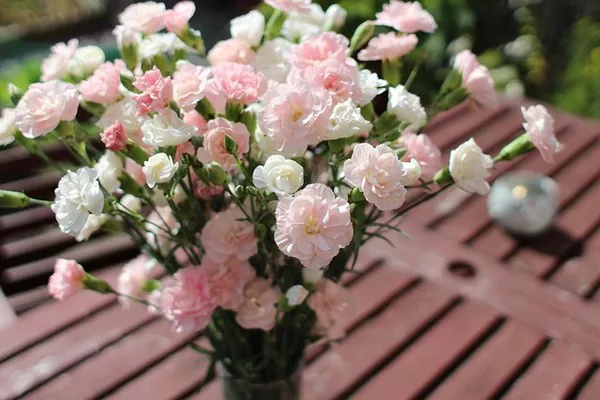Mother’s Day, a day dedicated to honoring mothers and motherhood, is celebrated worldwide with various traditions and customs. Among these traditions is the practice of gifting flowers, each bloom carrying its own symbolism and meaning. Flowers have long been used as a means of expression, conveying sentiments of love, gratitude, and appreciation. In this article, we delve into the symbolism behind some of the most popular flowers associated with Mother’s Day, exploring the profound messages they convey and the emotions they evoke.
The History of Mother’s Day and Floral Gifting
Before delving into the symbolism of flowers on Mother’s Day, it is essential to understand the history of this celebrated occasion. Mother’s Day has ancient roots, with early civilizations honoring mother goddesses and maternal figures. However, the modern iteration of Mother’s Day can be traced back to the early 20th century in the United States, thanks to the efforts of Anna Jarvis. Jarvis, inspired by her own mother’s activism and care, campaigned for a day to honor mothers as a way of expressing gratitude and love.
The tradition of gifting flowers on Mother’s Day has its origins in this early 20th-century movement. Flowers were seen as a symbol of purity, beauty, and nurturing—qualities often associated with motherhood. Over time, different flowers became emblematic of the occasion, each carrying its own significance and meaning.
The Language of Flowers
Floriography, or the language of flowers, has been used for centuries as a means of communication. During the Victorian era, when openly expressing emotions was often frowned upon, individuals turned to flowers to convey their feelings subtly. Each flower was assigned specific meanings, allowing people to send messages through floral arrangements.
While the practice of floriography has diminished over time, the symbolic meanings of flowers remain deeply ingrained in our culture, particularly when it comes to special occasions such as Mother’s Day. Gifting flowers on this day is not merely an act of appreciation but also a way of conveying heartfelt sentiments without the need for words.
Popular Flowers Associated with Mother’s Day
1. Carnation (Dianthus caryophyllus)
Carnations are perhaps the most iconic flowers associated with Mother’s Day. These delicate blooms are said to symbolize a mother’s undying love and devotion. According to Christian legend, carnations first appeared on Earth from the tears of the Virgin Mary, making them a fitting symbol for maternal love.
The color of carnations also holds significance. Pink carnations are often associated with gratitude and admiration, making them a popular choice for honoring mothers. White carnations symbolize purity and innocence, while red carnations represent deep love and affection.
2. Rose (Rosa spp.)
Roses are timeless symbols of love and beauty, making them a popular choice for Mother’s Day bouquets. Each color of rose carries its own symbolism, allowing for nuanced expression.
Red roses, with their association with romantic love, may seem an unlikely choice for Mother’s Day. However, they can also represent the deep love and appreciation one feels for their mother. Pink roses convey admiration and gratitude, while yellow roses symbolize friendship and joy—qualities often found in the bond between a mother and child.
3. Lily (Lilium spp.)
Lilies are elegant and sophisticated flowers often associated with purity and motherhood. In Christian tradition, the white lily is symbolic of the Virgin Mary’s purity and motherly love. As such, lilies are frequently included in Mother’s Day arrangements as a symbol of maternal devotion and nurturing.
4. Tulip (Tulipa spp.)
Tulips are vibrant spring flowers that symbolize various emotions depending on their color. Red tulips are associated with true love and passion, making them a meaningful choice for Mother’s Day bouquets. Pink tulips convey affection and caring, while yellow tulips symbolize happiness and cheerfulness—sentiments often expressed on Mother’s Day.
5. Chrysanthemum (Chrysanthemum spp.)
Chrysanthemums are resilient flowers that bloom in the fall, making them a symbol of longevity and endurance. In some cultures, chrysanthemums are associated with mothers and motherhood, representing strength and maternal love.
6. Gerbera Daisy (Gerbera jamesonii)
Gerbera daisies are cheerful flowers known for their bright colors and playful appearance. They symbolize innocence, purity, and happiness, making them a fitting choice for Mother’s Day arrangements. Their vibrant hues convey joy and appreciation, reflecting the warmth and affection shared between a mother and her children.
7. Peony (Paeonia spp.)
Peonies are luxurious blooms known for their lush petals and intoxicating fragrance. They symbolize prosperity, good fortune, and honor, making them an elegant choice for Mother’s Day bouquets. Peonies also represent compassion and maternal love, making them a meaningful gift for mothers everywhere.
Conclusion
The tradition of gifting flowers on Mother’s Day is a timeless gesture of love, gratitude, and appreciation. Each bloom carries its own symbolism, allowing for nuanced expression and heartfelt sentiments. Whether it’s the delicate petals of a carnation or the vibrant hues of a tulip, the flowers we choose to gift on Mother’s Day convey profound messages of love and admiration for the women who have shaped our lives. So, this Mother’s Day, let us honor and celebrate the maternal figures in our lives with bouquets that speak volumes without uttering a word.


